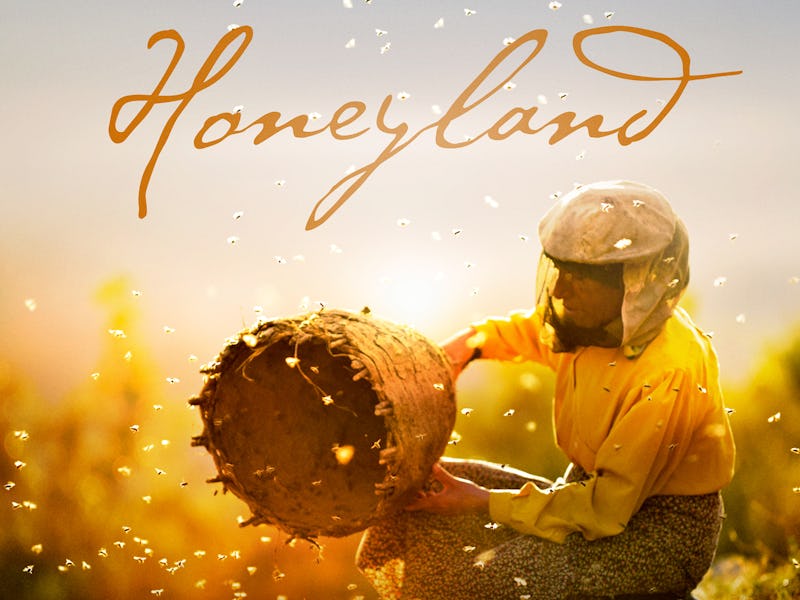Oscar-nominated doc 'Honeyland' teaches a golden rule, rooted in science
"Half for me, half for you."

Hatidze Muratova has spent her entire life living by a golden rule. When the fifty-something Macedonian beekeeper tends to her hives, isolated in the mountains, she sings a piece of beekeeping advice passed down from her ancestors: “Half for me, half for you.”
The visually stunning documentary Honeyland — nominated on Monday for two Oscars — shows what happens when that golden rule is respected — and when it’s disobeyed. The latter scenario drastically disrupts the natural order, subsequently changing Muratova’s life forever. The film got the nod for “best documentary feature” and “best international feature film of the year.”
Muratova is one of the last in a long line of Macedonian beekeepers. She lives in a village without electricity or running water. She’s incredible at her job: Carefully and sustainably harvesting honey in small batches, walking four hours to the town of Skopje, and selling the batches for 10 Euros a kilo.
Her rule — “half for me, half for you” — is folk wisdom rooted in science. Bees harvest nectar and convert the sugary liquid to honey. In turn, the honey becomes their primary source of carbohydrates, providing them with energy for flight and colony maintenance.
To store honey, the bees place it in cells and cap them off with beeswax — honeycomb. Stored honey becomes food for winter and other hard times. When there is not enough honey to make it through these nectar-poor periods, two things can happen: The colony will starve, or they may attack and raid other, weaker colonies looking for honey.
A delicate balance
Muratova’s routine ensures that this process of starvation-and-attack doesn’t happen — until it doesn’t. The film documents the moment when things change: A struggling, traveling family of seven move in next door, and soon, the patriarch, Hussein Sam, asks for Muratova’s beekeeping advice after seeing her success in selling honey. But as his debts pile up and his children grow hungrier, Sam ignores her advice in desperation: He harvests all of the honey in his hives — with deadly consequences.
To fend off starvation, his bees attack Muratova’s bees. Soon all of her bees — and with them, her way of life — are dead.
“The point is to take as much as you need, not to take everything, and leave [something] for tomorrow and those who are providing for you,” reflected co-director Ljubomir Stefanov. “The best comparison would be with modern consumerism, because this is like a small world, like a microcosm that has the same rules as this world about how consumerism destroys the natural resources completely.”
The film ends with Muratova — her bees dead, and freshly grieving a family change — considering where to go next. Her expertise is understanding the natural world; but it’s unclear how that expertise will serve her away from her hives.